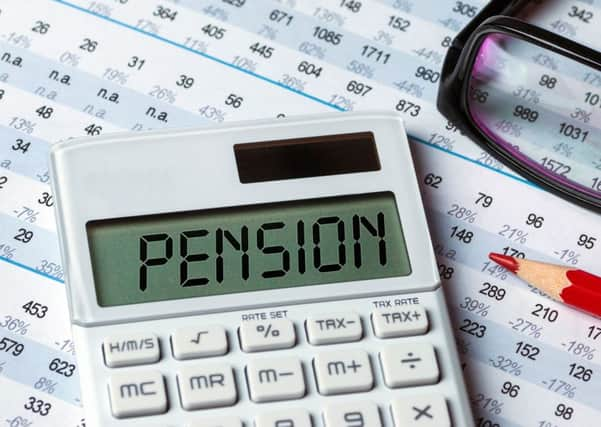Ros Altmann: Pensions industry must help workers build up savings


The behavioural theory behind the policy design is working brilliantly, as inertia has ensured workers who are automatically enrolled do not decide to opt-out. All the work is done by their employer.
But there are some significant failings of the policy so far which have the potential to undermine its long term success and which need urgent attention.
Advertisement
Hide AdAdvertisement
Hide AdWomen and the very lowest earners still not covered by pension auto-enrolment: Although auto-enrolment has brought millions of low earners into pension saving for the first time, it only covers those who earn more than £10,000 a year with an employer. Many part-time workers, mostly women, who earn less than this level, or who have more than one employer and earn below £10,000 from each one, are left out of the auto-enrolment process. They lose out on help from their employer towards their retirement income.


The most egregious problem is the ‘Net Pay scandal’: This relates to the lowest earners who are automatically enrolled into a pension scheme, but are being forced to pay 25 per cent extra for their pension, without knowing they are being charged so much extra and without being able to get the money back. This problem stems from the complexity of pensions administration and Inland Revenue rules.
If employers choose a pension scheme for their staff which administers on a ‘Net Pay’ system, then all workers earning less than the personal tax allowance (currently £11,850 a year) have to pay the equivalent of the basic rate tax relief themselves, which means they cannot have the 25 per cent Government bonus that they would receive if their employer used a different type of scheme. This so-called Net Pay Scandal must be corrected urgently.
Another serious failing is data errors which are not being properly monitored or corrected: Workers would naturally expect that the contributions deducted from their pay and paid into the pension scheme are correct. Indeed, the pension auto-enrolment rules are so complicated, workers cannot realistically be expected to know whether the amounts paid in are accurate.
Advertisement
Hide AdAdvertisement
Hide AdWorking as chair of pension fintech firm pensionsync I have seen that the administration of pensions does not ensure there are robust error checks or regular reconciliations. Worryingly, 50 per cent of the initial filings for small and medium-sized firms are wrong. Many of these errors are waved through with manual processes which prioritise expediency over accuracy.
The Government and Pensions Regulator should introduce robust requirements for data accuracy: Knowing that so many pension errors have already occurred, and bearing in mind that the Pensions Dashboard project is supposed to be introduced later this year, it is clear that an urgent process of data cleansing must be introduced.
The low paid also lose out most as first £6,032 earned is ignored for contribution calculation: The qualification and contribution rules are also extremely complex, which adds to the problems of calculating correct contributions and paying the right people, making it more burdensome for employers to operate pension processes.
Sooner or later, I would hope that pensions auto-enrolment will be extended to every employee, regardless of earnings and that the contributions will be paid on the entire salary. At the moment, minimum requirements just specify that the pension contribution relates to a part of each person’s earnings, not the entire amount.
Advertisement
Hide AdAdvertisement
Hide AdDeductions must just be based on ‘pensionable earnings’ which ignores the first £6,032 a year earned. Therefore, someone earning £10,000 a year only has pension contributions based on less than £4,000 a year. This means low earners also have much less going into pensions on their behalf.
Self-employed don’t benefit from auto-enrolment: There is significant concern that the increasing numbers of self-employed workers are left out of pensions altogether. Those in the gig economy, or those who are building their own company, get no outside help.
Of course, including such workers is not easy because workers have their employer set up a pension scheme for them and also pay extra money into it. This ‘free money’ is a significant incentive to stay enrolled.
The pensions industry has a chance to rise to the challenge of attracting and engaging all those who are omitted from auto-enrolment and help millions more workers build up resources for later life.
Ros Altmann is a Tory peer, pensions expert and former minister.